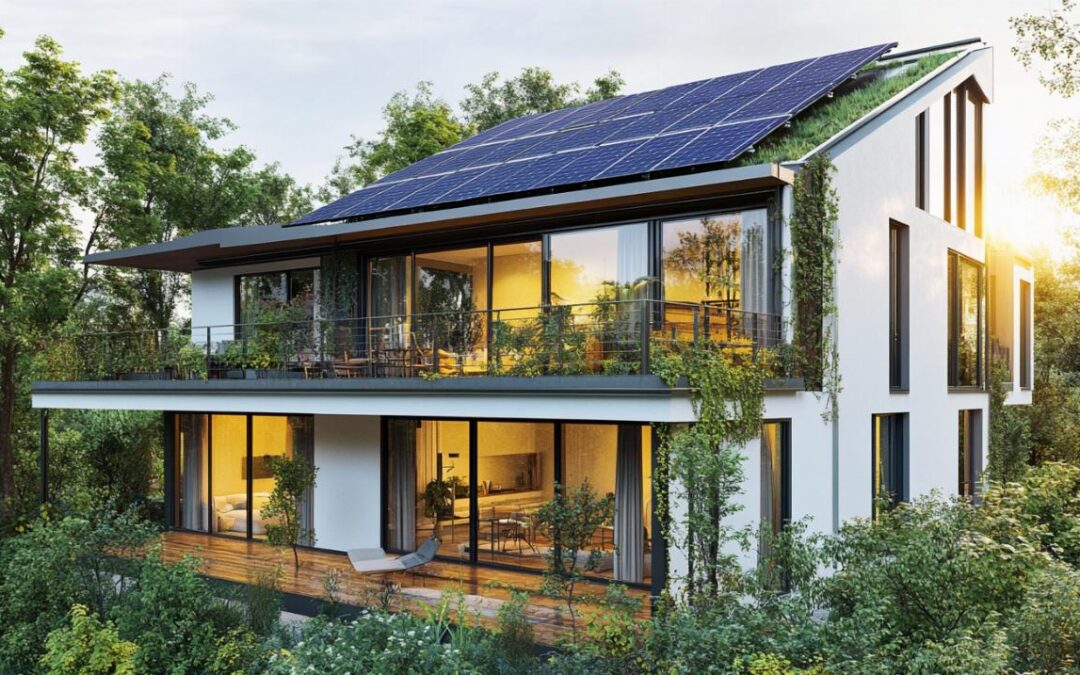The modern household stands at a pivotal juncture where everyday choices ripple outwards, influencing the health of our planet and the wellbeing of future generations. Integrating sustainable living practices into the fabric of daily life no longer feels like a distant aspiration reserved for activists or academics. Instead, it represents a tangible shift, accessible to anyone willing to embrace small yet meaningful changes. The movement towards greener habits has gained momentum across the United Kingdom, reflecting a growing awareness that individual actions, when multiplied, can yield profound results. This journey begins with understanding that sustainability is not about perfection but about progress, one decision at a time.
Transforming your daily routine with simple eco-friendly habits
Rethinking the way we approach our daily routines offers a gateway to a more environmentally conscious lifestyle. The choices we make each morning, the products we select, and the habits we cultivate all contribute to either perpetuating unsustainable consumption or fostering a culture of responsibility. Embedding sustainable living practices within these routines requires no grand gestures, only a willingness to reconsider the familiar and embrace alternatives that tread more lightly on the earth. From the moment we rise until we retire, opportunities abound to reduce waste, conserve energy, and support ethical practices.
Reimagining Your Morning Rituals for a Greener Start
The first hours of the day often set the tone for everything that follows, making them an ideal canvas for introducing eco-friendly adjustments. Consider the simple act of brewing your morning tea or coffee. Opting for loose leaf tea or freshly ground coffee beans purchased from local suppliers not only enhances flavour but also minimises packaging waste. Reusable coffee cups and insulated flasks replace single-use plastic bottles, cutting down on landfill contributions whilst keeping your beverage at the perfect temperature throughout your commute. These small swaps, repeated daily, accumulate into significant reductions in plastic waste and carbon emissions over time.
Energy consumption during morning routines also deserves attention. Switching to energy-efficient LED lighting in bathrooms and kitchens can reduce carbon emissions by up to forty kilograms annually for the average household. Short showers rather than prolonged baths conserve water, a resource increasingly under pressure. Low-flow showerheads further enhance this effort, delivering a satisfying experience whilst using far less water. Fixing leaks promptly prevents wastage that might otherwise go unnoticed, saving litres each day. Even the choice of cleaning products matters. Natural, biodegradable alternatives free from harsh chemicals protect waterways from pollution, contributing to healthier ecosystems. Traditional detergents and household cleaners release substantial quantities of chemicals into wastewater, a problem compounded when multiplied across millions of homes. By selecting eco-friendly options, households can reduce their contribution to this issue significantly.
Sustainable Commuting Solutions for the Modern Brit
Transportation represents one of the most impactful areas where individuals can make a difference. In the United Kingdom, road transport vehicles account for the overwhelming majority of emissions within the transport sector, underscoring the need for sustainable commuting solutions. Walking and cycling emerge as the most environmentally benign options, offering the added benefits of improved physical health and reduced congestion. For longer distances, public transport provides a viable alternative, cutting per-person emissions dramatically compared to private car journeys. Combining errands into a single trip when driving is necessary reduces fuel consumption and limits unnecessary mileage.
For those who rely on vehicles, maintaining them properly ensures optimal fuel efficiency. Ensuring tyres are inflated to the correct pressure is a straightforward yet frequently overlooked measure. A tyre that is twenty percent underinflated can increase fuel consumption by ten percent, a sobering reminder of how minor neglect translates into greater environmental impact. Electric vehicles represent a forward-thinking investment, especially as charging infrastructure continues to expand. With government incentives available, the transition to electric motoring becomes increasingly accessible. Even without switching to electric, mindful driving habits such as smooth acceleration and deceleration contribute to lower emissions and longer vehicle life.
Making Sustainable Choices Accessible and Practical for Every Household

Sustainability often carries misconceptions about cost and complexity, deterring households from taking action. Yet, many of the most effective measures require minimal financial outlay and fit seamlessly into existing routines. The key lies in prioritising simple, scalable changes that deliver tangible benefits without overwhelming budgets or schedules. By focusing on areas such as food, fashion, and home energy, families across the United Kingdom can embrace sustainable living practices in ways that feel both manageable and rewarding.
Budget-friendly approaches to reducing your carbon footprint
Reducing your carbon footprint need not involve expensive overhauls or dramatic lifestyle shifts. Secondhand shopping offers an excellent starting point, allowing consumers to acquire quality items at a fraction of the cost whilst diverting goods from landfill. The United Kingdom produces around one million tonnes of textile waste annually, much of which could find a second life through charity shops, online marketplaces, or clothing swaps. Fast fashion, responsible for up to ten percent of global carbon emissions, thrives on rapid turnover and disposable garments. By resisting this cycle and opting for durable, timeless pieces, shoppers can reduce demand for resource-intensive production processes.
Energy efficiency improvements within the home also present cost-effective opportunities. Insulating lofts can prevent up to twenty-five percent of heat loss, translating into lower heating bills and reduced energy consumption. Cavity wall insulation, draught excluders, and radiator foil enhance these efforts, creating a warmer living environment without cranking up the thermostat. Smart thermostats adjust heating schedules based on occupancy and weather patterns, delivering energy savings of around sixteen and a half percent. These technologies, whilst requiring an initial investment, pay for themselves over time through reduced utility bills. Government schemes such as the Boiler Upgrade Scheme offer financial support for installing heat pumps, which operate at efficiencies between two hundred and six hundred percent, making them an attractive option for long-term sustainability.
Creating a Sustainable Kitchen Without Breaking the Bank
The kitchen serves as the heart of the home and a focal point for sustainable living practices. Food choices wield considerable influence over environmental impact, with meat consumption and food waste emerging as critical areas for improvement. Reducing meat intake, particularly red meat, lowers demand for resource-intensive livestock farming. Incorporating more plant-based meals into weekly menus diversifies diets whilst shrinking carbon footprints. Roughly forty percent of edible food in some regions goes to waste, a staggering figure that highlights the importance of meal planning and mindful consumption. Shopping with a list, storing food correctly, and using leftovers creatively all contribute to minimising waste.
Supporting local and seasonal produce reduces the carbon emissions associated with long-distance food transportation. The average item of fresh food travels fifteen hundred miles before reaching consumers, a journey that racks up significant emissions. Farmers’ markets and local greengrocers provide opportunities to source fresh, seasonal ingredients whilst supporting regional economies. Organic products, free from synthetic pesticides, offer additional environmental benefits. Over two billion pounds of pesticides are sold annually in some countries, posing risks to soil health, water quality, and biodiversity. Choosing organic reduces exposure to these chemicals and encourages farming practices that prioritise ecological balance.
Plastic reduction in the kitchen extends beyond food choices to encompass storage and preparation. Reusable containers replace cling film and disposable bags, whilst beeswax wraps offer an eco-friendly alternative for covering leftovers. Avoiding single-use plastics such as bags, bottles, and straws becomes second nature with a bit of planning. Reusable alternatives, from stainless steel water bottles to cloth shopping bags, prove both practical and durable. Microplastics, tiny fragments that permeate oceans and soil, originate in part from textiles and packaging. By limiting plastic use and opting for biodegradable products, households can reduce their contribution to this pervasive pollutant.
Water conservation complements efforts to create a sustainable kitchen. Low-flow taps and mindful usage during washing-up sessions preserve this precious resource. Fixing leaks promptly prevents wastage that accumulates into substantial volumes over months and years. Eco-friendly washing and cleaning products further protect waterways from harmful chemicals, supporting healthier ecosystems downstream. These small adjustments, woven into daily routines, demonstrate that sustainable living practices need not be burdensome or expensive. Instead, they represent a thoughtful approach to consumption, one that honours the interconnectedness of human wellbeing and environmental health.
Embracing sustainable living practices within everyday life empowers individuals to become agents of change, contributing to a collective effort that transcends borders and generations. Whether through reimagining morning rituals, adopting budget-friendly energy solutions, or transforming the kitchen into a hub of mindful consumption, each step taken reinforces the possibility of a greener future. The journey may begin with a single choice, but its impact resonates far beyond the walls of any one home, shaping a world where sustainability is not an exception but a cherished norm.





